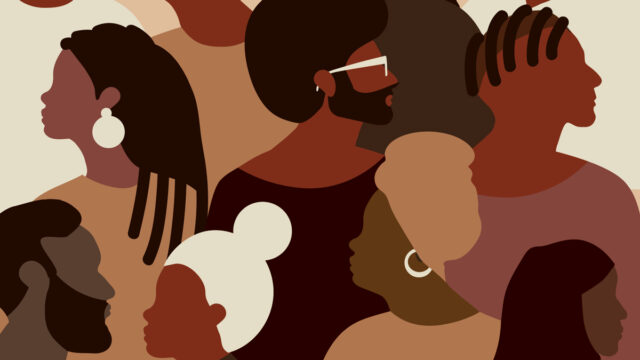Inspiration meets innovation at Brandweek, the ultimate marketing experience. Join industry luminaries, rising talent and strategic experts in Phoenix, Arizona this September 23–26 to assess challenges, develop solutions and create new pathways for growth. Register early to save.
Some of the biggest personal and professional achievements of my life have come out of a period that was uncomfortable or tough, teaching me valuable lessons through a moment for self-reflection and maturation.
To understand, advocate for, represent and amplify diverse voices and communities globally, I have learned that something to remain adamant about is the language used to identify and refer to oppressed groups.
I remain committed to using the phrase marginalized communities. Even hearing the word “marginalized” may make some wince, or feel a flash of discomfort, and I assure you that is precisely why it’s so important.
A closer look at today’s terminology
Diverse communities and voices have existed under the active practice of societal marginalization and oppression in many ways for centuries across the globe.
Voices at the intersection of Black, Latinx, LGBTQ+, Native/Indigenous and disabled communities have to fight to be recognized, listened to and included in many industries. This is when phrases like “excluded communities” do not suffice. Exclusion means one may or could be coexisting equitably, but cannot intermingle with another group. It’s still problematic but not exactly what accurately describes the experiences of these marginalized groups.
A colleague and friend of mine, Myles Worthington, has made a passionate plea to describe these groups as “underestimated.” I can completely understand the thought direction. However, the true root cause for these groups’ collective experience is still evaded through this term.
These groups are not always particularly underestimated, as there have been decades of clear proof points that showcase the immense level of innovation, creativity, purchasing power and societal influence that diverse groups wield, which means their absence in certain business and societal institutions has been a deliberate choice or pattern. There goes that uncomfortable feeling again, but we must feel it to fix it.
The real discomfort: Not acknowledging systemic oppression
The definition of the word marginalize is “to relegate to an unimportant or powerless position within a society or group.” This means there is an operating force and decision made by those with power to affect these communities this way. And here we meet the real discomfort.
We must look at those who hold power within society and our institutions and recognize that systems and actions have been built and maintained to withhold and strip that power away from other groups. Marketers must not forget this every time we speak of these communities, and we must speak the truth of what has created our reality every time we address rectifying it.
This means that those in power will feel uncomfortable, as might those who have been affected by it, but that doesn’t mean we should soften the blow for ourselves. We need to feel it to fix it.
This is in no way an attempt to say that marginalized communities are only shaped by or relegated to be defined by the systemic circumstances that have affected their existence. There are so many more layers to who they are, including joy and ingenuity, alongside resilience and perseverance.
The term “marginalized” instead honors them and anchors their story in its truth. They have been more than ignored, more than excluded, more than underestimated—they have been systematically marginalized, and marketers must continue to confront this to enact the real change needed to undo the damage that has been done and fight for a truly equitable future.
I know I’m ready to stay uncomfortable if it means things will evolve. As a Black woman, and a marginalized person myself, we have no choice—our future depends on it.










